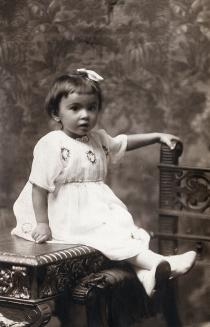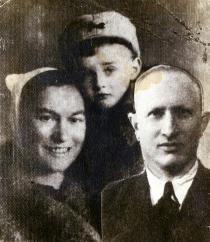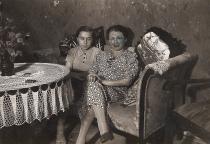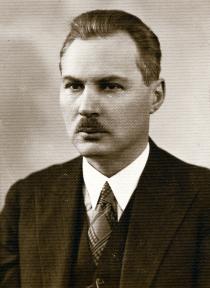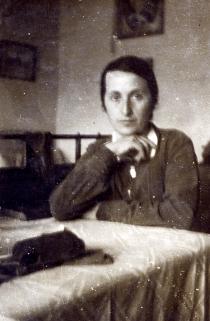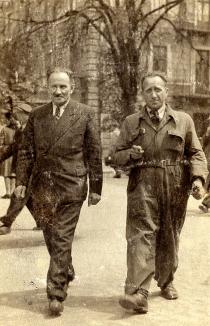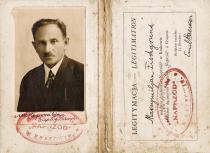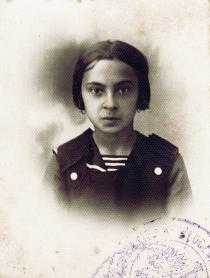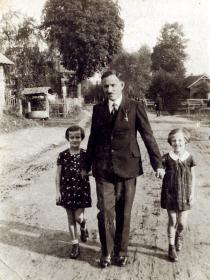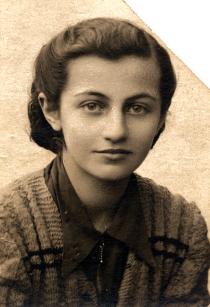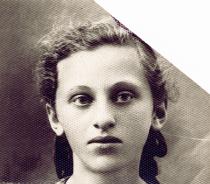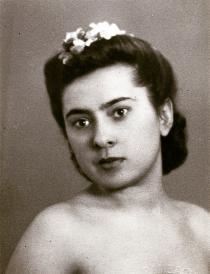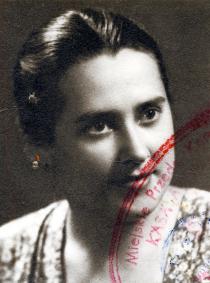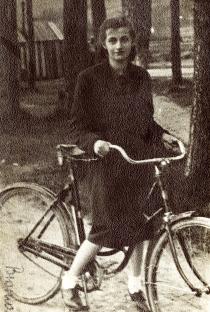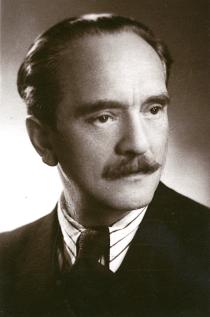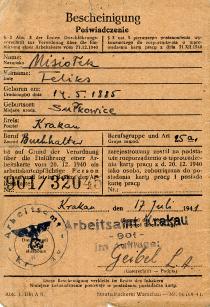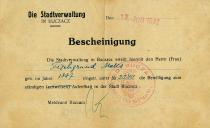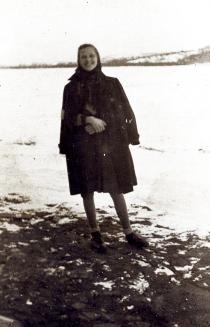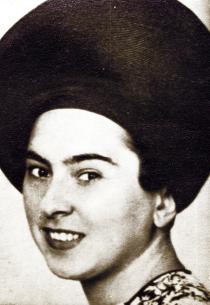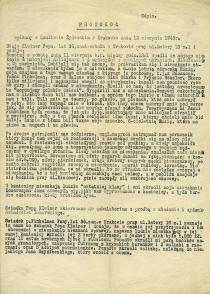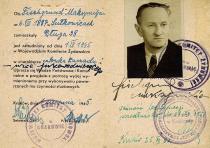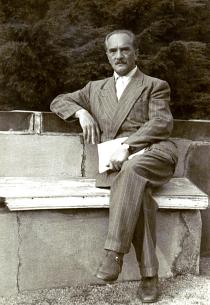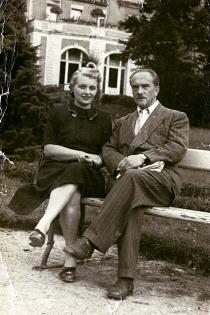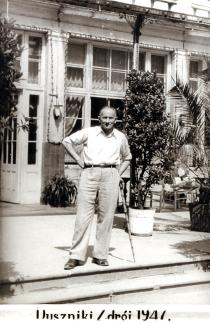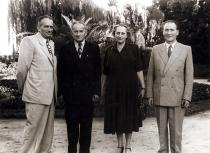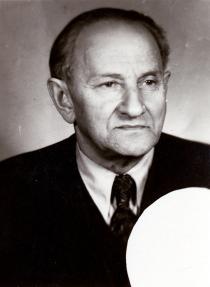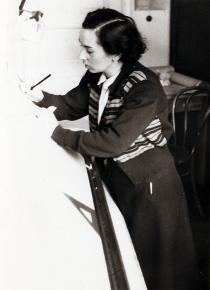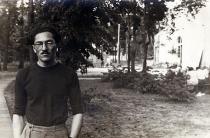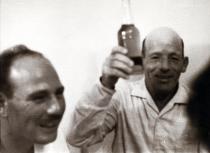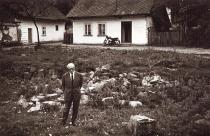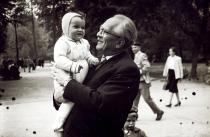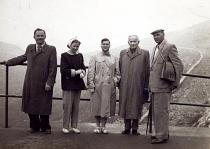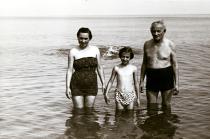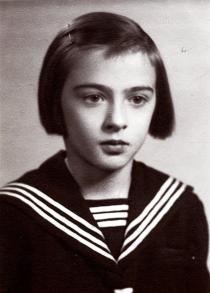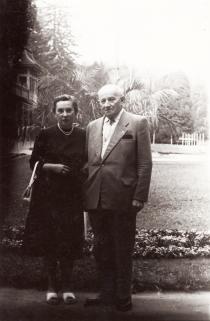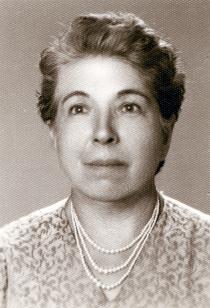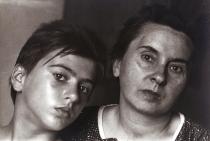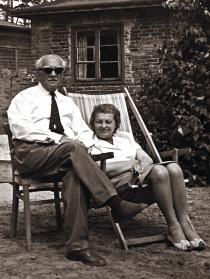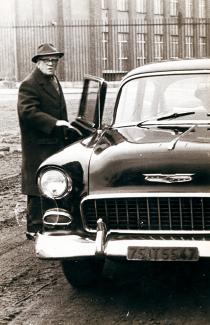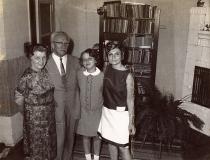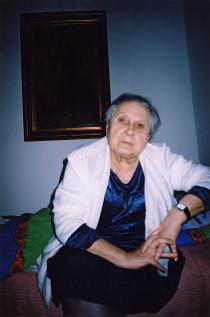This is me at the age of 18 with flowers in my hair. The photo was taken in Tyraspolski's studio, soon after the war broke out or shortly before. Tyraspolski's was a good photo studio on Piotrkowska Street. I had several pictures taken there, and this is the only one that survived.
My father ran a pharmacy in Przedecz for a long time. Then he sold it and moved to Lodz. He bought a stake in our family pharmacy at Napiorkowskiego Street. There were three or four partners there. My parents had trouble getting their ends meet. Well, things weren't going too well.
My parents came to Lodz about one year and a half before the war. When the war broke out, the Germans didn't take Jews to the ghetto right away, but immediately started confiscating everything, whatever anyone had. If you were a non-Aryan, they immediately nationalized your property. They had organized the so-called 'Kriegswanderung' [German for 'wartime wandering'] and had to give some employment to those people. So factories and all the better businesses were being given in the first place to the Kurland Germans. Especially if they had left some assets in their home country. Very many of them came to Lodz.
I was in the ghetto for only a very short time, perhaps three weeks. It was at the end of 1942, the period of great terror. Irena, my younger sister, born in 1923 or 1924, worked in a pharmacy in the ghetto. One day she left the ghetto and never returned. She had the so-called Aryan papers.
I walked out too. I remember I was walking down the street and crying, my nerves cracked, simple as that. And someone accosted me, 'Alina, Ala, why are you crying? What's happening? Are you alright?' It was my friend, we went to gymnasium together, and when I told her everything, she said, 'Don't worry about anything. You'll be on my papers. I'll report them as lost, and you take them and go to Vienna, and that's it. I'll give you an address whom to go to, they'll hide you, and everything will be okay.' It was like fantasy, like a dream.

